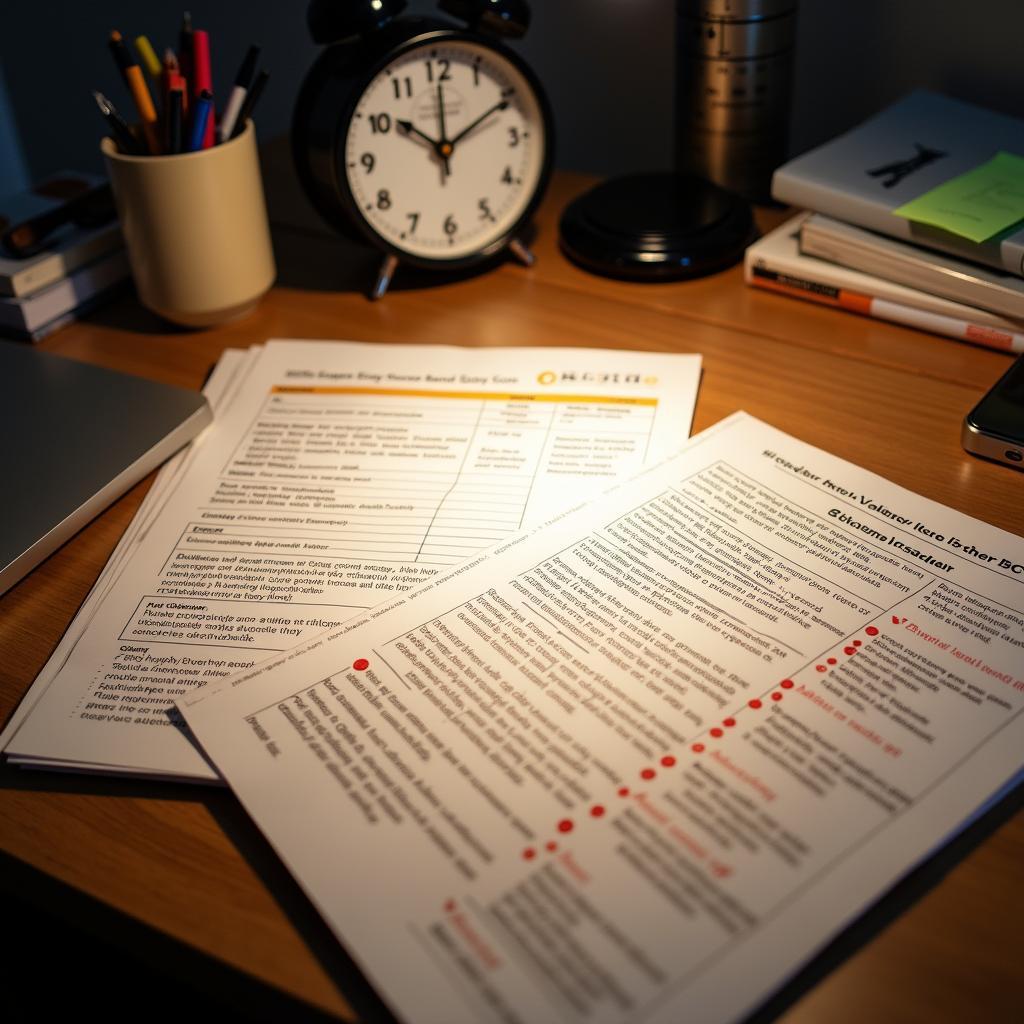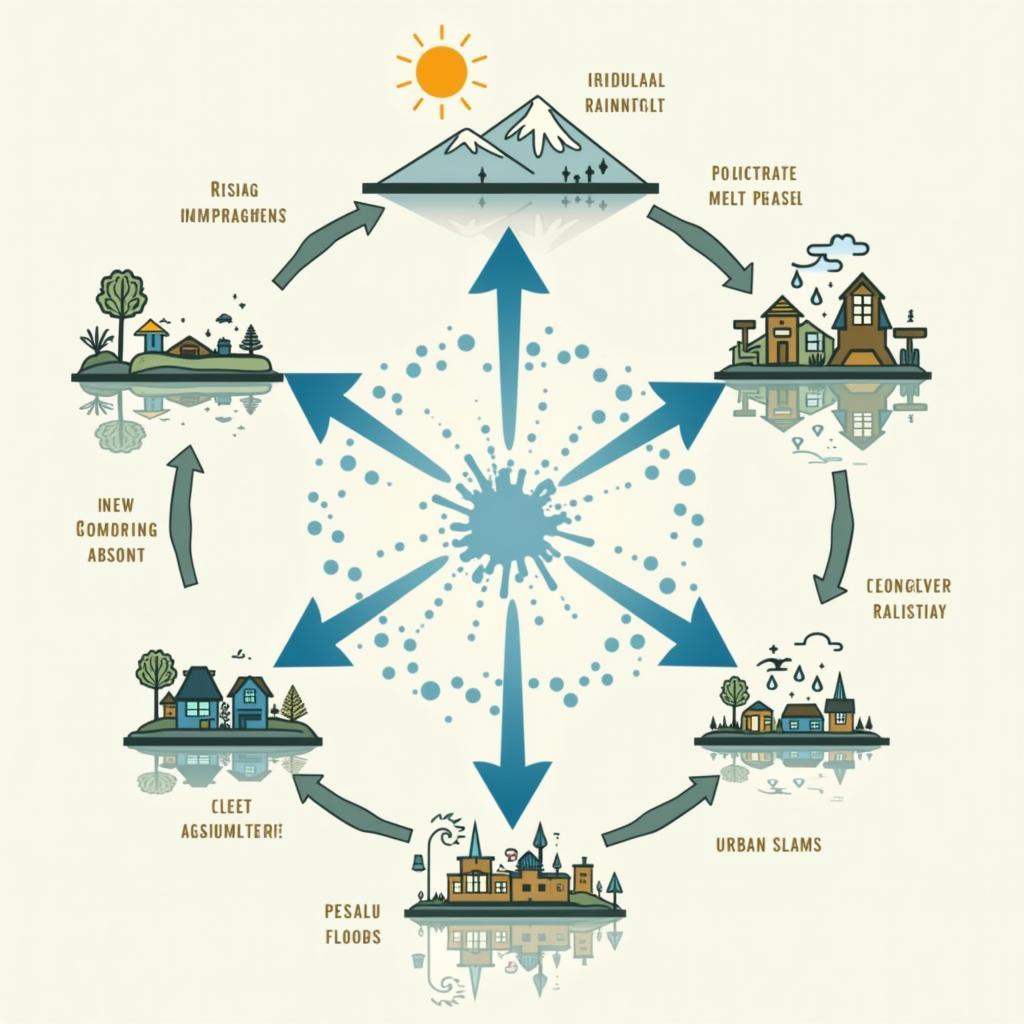Trong nhiều năm chấm và giảng dạy IELTS Writing Task 2, tôi nhận thấy chủ đề “gap year” (nghỉ một năm sau khi tốt nghiệp trung học để du lịch hoặc đi làm trước khi vào đại học) xuất hiện với tần suất khá đều. Câu hỏi “Is Travel After School More Useful Than Work Experience Before University” là một biến thể hẹp hơn, yêu cầu bạn so sánh lợi ích giữa du lịch và làm việc, nhưng các đề thi thực tế thường bao quát cả hai phương án trong cùng một câu hỏi. Bài viết này giúp bạn làm chủ chủ đề qua: 3 bài mẫu Band 5-6, 6.5-7, 8-9; phân tích chấm điểm chi tiết; từ vựng trọng tâm; cấu trúc câu ghi điểm cao; checklist tự đánh giá và mẹo quản lý thời gian.
Một số đề thi thực tế đã được xác minh từ các nguồn uy tín (IELTS Liz, British Council, IDP) liên quan chặt chẽ tới chủ đề:
- In some countries, young people are encouraged to work or travel for a year between finishing high school and starting university. Discuss the advantages and disadvantages for young people who decide to do this. (Nguồn tổng hợp đề: IELTS Liz; British Council)
- Some students take a year off between school and university to travel or to work. Do the advantages of this outweigh the disadvantages? (Nguồn tổng hợp đề: IELTS Liz; IDP)
- Many young people choose to take a gap year before university to gain work experience or see the world. Do you think this is a good idea? (Nguồn tổng hợp đề: British Council; IDP)
Bạn sẽ học được cách triển khai ý bài bản, tránh lạc đề, và tận dụng cấu trúc câu, collocations để đẩy band điểm.
 Minh họa chủ đề gap year so sánh du lịch và trải nghiệm làm việc trong IELTS Writing Task 2
Minh họa chủ đề gap year so sánh du lịch và trải nghiệm làm việc trong IELTS Writing Task 2
1. Đề Writing Part 2
In some countries, young people are encouraged to work or travel for a year between finishing high school and starting university. Discuss the advantages and disadvantages for young people who decide to do this.
Dịch đề: Ở một số quốc gia, người trẻ được khuyến khích làm việc hoặc đi du lịch trong một năm sau khi tốt nghiệp trung học và trước khi vào đại học. Hãy thảo luận những ưu điểm và nhược điểm cho những người trẻ quyết định làm điều này.
Phân tích đề bài:
- Dạng câu hỏi: Advantages and disadvantages (thảo luận cả hai mặt). Bạn cần:
- Nêu rõ cả lợi ích và hạn chế.
- Có đánh giá cân bằng; có thể đưa quan điểm nhẹ ở kết bài (không bắt buộc).
- Thuật ngữ quan trọng:
- Gap year: năm nghỉ giữa các cấp học.
- Work experience: trải nghiệm làm việc thực tế, thường part-time hoặc full-time.
- Travel: du lịch trong nước hoặc quốc tế, có thể kèm hoạt động tình nguyện.
- Lỗi thường gặp của học viên Việt Nam:
- Lạc đề: chỉ nói về “du lịch” mà quên “đi làm” (hoặc ngược lại).
- Mơ hồ hóa lợi ích: dùng các cụm “get more knowledge”, “be more mature” mà thiếu ví dụ cụ thể.
- Lỗi mạo từ (a/an/the), thì động từ (nhất là hiện tại đơn vs hiện tại hoàn thành), giới từ (benefit from, result in).
- Cách tiếp cận chiến lược:
- Dàn ý theo 2 đoạn thân: Ưu điểm (travel + work); Nhược điểm (chi phí, trì hoãn, rủi ro).
- Sử dụng ví dụ sát bối cảnh Việt Nam: chi phí, thị thực, cơ hội việc làm.
- Kết bài có thể cân nhắc: phù hợp cá nhân (khả năng tài chính, mục tiêu ngành học).
2. Bài mẫu Band 8-9: Is travel after school more useful than work experience before university?
Bài Band 8-9 cần quan điểm rõ, lập luận sắc, ví dụ chọn lọc, đồng thời ngôn ngữ tự nhiên, mượt mà; không “làm màu” quá mức.
Essay (298 words):
While a gap year can involve either travelling or working, its value hinges on how purposefully it is planned. On balance, taking time off between school and university offers notable benefits, yet these are not cost-free. This essay weighs the advantages and disadvantages, and contends that structured work experience tends to yield more durable academic and career dividends than unstructured travel, though travel curated around learning can be equally transformative.
On the upside, postponing university can foster maturity, self-management, and clearer academic goals. Students who work for a year often acquire industry exposure, test career assumptions, and accumulate savings to ease tuition burdens. For instance, an aspiring marketer interning at a start-up would develop analytics literacy and stakeholder communication, which directly translate into first-year coursework. Travel, when intentionally designed—such as volunteering in conservation projects or completing a language immersion—can sharpen intercultural competence and resilience, qualities prized in globalised campuses.
However, the downsides are tangible. A poorly planned gap year may erode study momentum, making the transition back to academic rigour difficult. Financially, extended travel can be prohibitive and even exacerbate student debt. Moreover, CV signalling is uneven: admissions tutors often evaluate structured roles or qualifications more favourably than generic backpacking, unless the latter culminates in measurable outcomes (certifications, published projects, or leadership roles).
In my view, work experience has a clearer, more verifiable return for most students, as it strengthens both applications and employability. That said, the binary is false: travel that embeds rigorous goals—research assistantships, fieldwork, or accredited courses—can rival the benefits of work. Therefore, the optimal path is goal-driven design: choose work if your field rewards early experience; choose travel if it concretely builds domain-relevant skills; avoid either if the plan lacks structure, budget, or academic continuity.
Phân tích Band điểm
| Tiêu chí | Band | Nhận xét |
|---|---|---|
| Task Response (Hoàn thành yêu cầu) | 8.5 | Trả lời đầy đủ ưu và nhược điểm; có lập luận so sánh travel vs work phù hợp đề. Quan điểm rõ, có điều kiện “goal-driven design”. Ví dụ cụ thể, thuyết phục. |
| Coherence & Cohesion (Mạch lạc & Liên kết) | 8 | Tổ chức theo luận điểm rõ ràng, mỗi đoạn có chủ đề. Dùng tham chiếu và từ nối một cách tự nhiên, không lạm dụng. Mạch lập luận tăng dần và kết nối tốt với kết bài. |
| Lexical Resource (Từ vựng) | 8.5 | Từ vựng học thuật đa dạng: “intercultural competence”, “CV signalling”, “analytics literacy”. Collocations chính xác; dùng từ tinh tế, hạn chế lặp. |
| Grammatical Range & Accuracy (Ngữ pháp) | 8 | Câu phức, mệnh đề rút gọn, mệnh đề quan hệ, cấu trúc nhấn mạnh. Lỗi ngữ pháp không đáng kể; dấu câu chuẩn xác. |
Các yếu tố giúp bài này được chấm điểm cao
- Luận điểm then chốt được nêu sớm và nhất quán: work > travel nếu travel không có mục tiêu.
- Ví dụ mang tính nghề nghiệp cụ thể (marketing, analytics, stakeholder communication).
- Phân biệt travel “unstructured” và travel “curated/goal-driven”.
- Từ vựng định lượng lợi ích thực tế (admissions, qualifications, employability).
- Cân bằng rủi ro: chi phí, mất đà học, tín hiệu CV.
- Kết luận không cực đoan; đề xuất khuôn khổ ra quyết định theo mục tiêu cá nhân.
- Sử dụng collocations và danh từ trừu tượng chính xác, không “đao to búa lớn”.
 Bài mẫu Band 8-9 so sánh du lịch và kinh nghiệm làm việc trong gap year
Bài mẫu Band 8-9 so sánh du lịch và kinh nghiệm làm việc trong gap year
3. Bài mẫu Band 6.5-7: Is travel after school more useful than work experience before university?
Đặc điểm: trả lời đúng trọng tâm, có ví dụ, từ vựng tương đối tốt nhưng chưa thật sắc sảo; liên kết còn đôi chỗ cơ học.
Essay (265 words):
Taking a gap year to travel or to work can influence students’ future study and careers. In my opinion, both choices are useful, but work experience is usually easier to present to universities and employers.
On the one hand, travel can broaden horizons. Students who visit different countries may learn new languages, understand other lifestyles, and become more confident when they live independently. For example, a Vietnamese student joining a short volunteering program in Thailand could improve communication skills and learn teamwork with international friends. These soft skills can be helpful for group projects at university. Also, some young people become more motivated after travel because they see real problems, such as plastic waste, and want to study environmental science seriously.
On the other hand, working for a year provides more direct benefits. A part-time or full-time job helps students manage time, handle pressure, and save money for tuition. More importantly, a relevant position, like assisting in a lab or supporting a marketing team, gives practical knowledge that connects to first-year subjects. When students write personal statements, this experience is concrete: they can list responsibilities, achievements, and sometimes get a reference letter. In contrast, general backpacking is difficult to prove in an application, unless it includes a certificate or a clear outcome.
In conclusion, travel is meaningful if it is planned with goals, such as language courses or community projects. However, for most students, work experience is more convincing and practical before university because it can be easily explained and evaluated.
Phân tích Band điểm
| Tiêu chí | Band | Nhận xét |
|---|---|---|
| Task Response (Hoàn thành yêu cầu) | 7 | Trả lời đầy đủ 2 mặt; có quan điểm rõ. Ví dụ phù hợp nhưng chưa thật sâu hoặc độc đáo. |
| Coherence & Cohesion (Mạch lạc & Liên kết) | 6.5 | Bố cục chuẩn; từ nối sử dụng ổn nhưng còn đơn giản, lặp “On the one hand/On the other hand”. Chuyển ý đôi chỗ còn cơ học. |
| Lexical Resource (Từ vựng) | 7 | Từ vựng đủ dùng cho chủ đề; có cụm “personal statements, reference letter” nhưng vẫn lặp “useful/benefit”. Cần đa dạng hóa collocations hơn. |
| Grammatical Range & Accuracy (Ngữ pháp) | 6.5 | Có câu phức và mệnh đề quan hệ; phần lớn chính xác. Vẫn có xu hướng dùng cấu trúc an toàn, thiếu sự linh hoạt nâng cao. |
So sánh với bài Band 8-9
- Luận điểm: Bài 8-9 nhấn mạnh “goal-driven design” như khuôn khổ quyết định, bài 6.5-7 nêu “work thường thuyết phục hơn” nhưng thiếu khung phân tích.
- Từ vựng: Bài 8-9 dùng thuật ngữ chuyên sâu (CV signalling), bài 6.5-7 dùng từ phổ thông hơn.
- Ví dụ: Bài 8-9 có ví dụ nghề nghiệp cụ thể; bài 6.5-7 ví dụ chung hơn, chưa nêu kết quả đo lường.
- Liên kết: Bài 8-9 chuyển ý tự nhiên; bài 6.5-7 dùng cặp cấu trúc đối lập cơ bản.
4. Bài mẫu Band 5-6
Đặc điểm: ý đúng hướng nhưng phát triển chưa sâu; từ vựng lặp, liên kết rời, lỗi ngữ pháp thực tế.
Essay (255 words) – lỗi được tô đậm:
Many students take a gap year to travel or work before university. I think this is good because they can get more experience. However, there are also some problems with it.
Firstly, travel is very good because it makes students more open-minded and they can learn many culture. If a student go to another country, they will improve their English very fastly. Also, they become independent because they manage money and live by themselves easier. Besides of that, when they come back to school, they will be more mature.
Secondly, working is also useful. Students can make money and help their family. They can learn soft skills like communication and teamwork. For example, working in a coffee shop teach them how to deal with customers and pressure. This is very important when they study in university because they must do many assignments. On the other side, sometimes work is hard and boring so students may lose motivation for study.
However, there are disadvantages. Travel is expensive and it is wasting time if students just play. Work can make students tired and they forget study. In conclusion, I believe gap year has more advantages because students become more confident and get experience, but it should be plan carefully.
Phân tích Band điểm
| Tiêu chí | Band | Nhận xét |
|---|---|---|
| Task Response (Hoàn thành yêu cầu) | 6 | Trả lời đủ hai mặt, có kết luận, nhưng lập luận hời hợt, ví dụ chưa cụ thể; thiếu phân tích sâu ảnh hưởng tới học và hồ sơ. |
| Coherence & Cohesion (Mạch lạc & Liên kết) | 5.5 | Liên kết cơ bản; từ nối sai hoặc không tự nhiên (“Besides of that”, “On the other side”); câu và đoạn chuyển ý rời. |
| Lexical Resource (Từ vựng) | 5.5 | Từ vựng hạn chế, lặp; collocations sai/không tự nhiên (“learn many culture”, “very fastly”). |
| Grammatical Range & Accuracy (Ngữ pháp) | 5.5 | Nhiều lỗi số ít/số nhiều, thì, giới từ, trạng từ; cấu trúc câu đơn giản, một số câu không chuẩn. |
Những lỗi sai của bài – phân tích & giải thích
| Lỗi sai | Loại lỗi | Sửa lại | Giải thích |
|---|---|---|---|
| learn many culture | Danh từ đếm được/không đếm được | learn about many cultures | “Culture” không đếm được chung chung; ở đây cần “cultures” (nhiều nền văn hóa). |
| If a student go | Hòa hợp chủ ngữ – động từ | If a student goes | Chủ ngữ số ít “student” → “goes”. |
| very fastly | Trạng từ bất quy tắc | very fast / very quickly | “Fast” vừa adj vừa adv; không có “fastly”. |
| live by themselves easier | Trật tự từ/so sánh | live by themselves more easily | Trạng từ “easily” và so sánh “more easily”. |
| Besides of that | Giới từ cố định | Besides that / In addition | “Besides” không đi với “of” trong cấu trúc này. |
| teach them | Thì/ hòa hợp | teaches them | Chủ ngữ “working in a coffee shop” (V-ing → danh từ số ít) → “teaches”. |
| On the other side | Cụm nối sai | On the other hand | Cặp liên kết đúng: “On the one hand/On the other hand”. |
| it is wasting time | Cấu trúc V-ing | it is a waste of time | Collocation đúng. |
| it should be plan carefully | Dạng V-ed | it should be planned carefully | Bị động cần V3/ed. |
Cách Cải Thiện Từ Band 6 Lên Band 7
- Nâng cấp ví dụ: nêu lĩnh vực, nhiệm vụ, kết quả đo lường (chứng chỉ, thư giới thiệu).
- Đa dạng từ vựng: thay “good/useful” bằng “rewarding, verifiable, cost-effective”.
- Dùng cấu trúc câu phức, mệnh đề quan hệ, cụm phân từ để cô đọng ý.
- Kiểm soát lỗi cơ bản: a/an/the; thì hiện tại đơn vs hiện tại hoàn thành; giới từ đi kèm động từ.
- Lập dàn ý rõ ràng với topic sentence định hướng lợi ích/hạn chế, tránh lặp ý.
5. Từ vựng quan trọng cần nhớ
| Từ/Cụm từ | Loại từ | Phiên âm | Nghĩa tiếng Việt | Ví dụ (English) | Collocations |
|---|---|---|---|---|---|
| gap year | n. | /ɡæp jɪr/ | năm nghỉ giữa cấp học | A structured gap year can boost employability. | take a gap year; structured gap year |
| work experience | n. | /wɜːrk ɪkˈspɪriəns/ | trải nghiệm làm việc | Relevant work experience strengthens applications. | gain/obtain/relevant work experience |
| backpacking | n. | /ˈbækˌpækɪŋ/ | du lịch bụi | Unstructured backpacking may not impress admissions. | go backpacking; backpacking trip |
| intercultural competence | n. | /ˌɪntərˈkʌltʃərəl ˈkɑːmpɪtəns/ | năng lực liên văn hóa | Travel can build intercultural competence. | build/develop intercultural competence |
| admissions tutor | n. | /ədˈmɪʃənz ˈtuːtər/ | người tuyển sinh | Admissions tutors value verifiable outcomes. | impress/persuade admissions tutors |
| personal statement | n. | /ˌpɜːrsənl ˈsteɪtmənt/ | bài tự luận (hồ sơ) | She cited her internship in the personal statement. | write/cite in a personal statement |
| reference letter | n. | /ˈrefərəns ˈletər/ | thư giới thiệu | A supervisor provided a strong reference letter. | provide/attach a reference letter |
| verifiable outcome | n. | /ˌverɪˈfaɪəbl ˈaʊtkʌm/ | kết quả có thể kiểm chứng | Courses offer verifiable outcomes like certificates. | achieve/deliver verifiable outcomes |
| lose academic momentum | v. phr. | /luːz ˌækəˈdemɪk məˈmentəm/ | mất đà học tập | A long break can cause students to lose academic momentum. | maintain/lose/recover momentum |
| cost-prohibitive | adj. | /ˌkɔːst prəˈhɪbətɪv/ | tốn kém quá mức | International travel can be cost-prohibitive. | be/consider sth cost-prohibitive |
| weigh the trade-offs | v. phr. | /weɪ ðə ˈtreɪd ɒfs/ | cân nhắc đánh đổi | Students must weigh the trade-offs carefully. | carefully/realistically weigh trade-offs |
| on balance | adv. phr. | /ɒn ˈbæləns/ | nhìn chung, sau khi cân nhắc | On balance, work experience is more persuasive. | On balance, it seems… |
| to a large extent | adv. phr. | /tuː ə lɑːrdʒ ɪkˈstent/ | ở mức độ lớn | Benefits depend, to a large extent, on planning. | to a large extent/degree |
| outweigh | v. | /ˌaʊtˈweɪ/ | lớn hơn, vượt trội | Advantages may outweigh disadvantages. | advantages outweigh disadvantages |
| signal (to) | v. | /ˈsɪɡnəl/ | phát tín hiệu, biểu đạt | Internships signal readiness to study. | signal readiness/competence |
Lưu ý phát âm: luyện theo IPA và shadowing để nhớ lâu; ghi nhớ collocations theo cụm, không học rời rạc.
6. Cấu trúc câu dễ ăn điểm cao
- Câu phức với mệnh đề phụ thuộc
- Công thức: Mệnh đề phụ thuộc (when/if/because/although…) + Mệnh đề chính.
- Ví dụ từ bài Band 8-9: While a gap year can involve either travelling or working, its value hinges on how purposefully it is planned.
- Vì sao điểm cao: Tạo tương phản logic; mở rộng ý tinh gọn.
- Ví dụ bổ sung:
- Although travel is inspiring, it can be cost-prohibitive for many students.
- If the year is unplanned, students may lose academic momentum.
- Lỗi thường gặp: Dùng “Although…but”; thiếu dấu phẩy đúng chỗ.
- Mệnh đề quan hệ không xác định (non-defining relative clause)
- Công thức: Danh từ, which/who + mệnh đề, mệnh đề chính.
- Ví dụ: Travel, which can sharpen intercultural competence, is valuable when it is goal-driven.
- Vì sao điểm cao: Bổ sung thông tin, tăng độ tinh tế.
- Ví dụ bổ sung:
- The internship, which lasted six months, led to a reference letter.
- The project, which was accredited, provided verifiable outcomes.
- Lỗi: Quên dấu phẩy; lẫn với mệnh đề xác định.
- Cụm phân từ (participle phrases)
- Công thức: V-ing/V-ed + cụm bổ nghĩa, mệnh đề chính.
- Ví dụ: Postponing university can foster maturity and clearer academic goals.
- Vì sao điểm cao: Cô đọng, tự nhiên.
- Ví dụ bổ sung:
- Working in a relevant field, students build tangible skills.
- Poorly planned, a gap year may become a waste of time.
- Lỗi: Lơ lửng chủ ngữ (dangling modifier).
- Câu chẻ (Cleft sentences)
- Công thức: It is/was + thành phần nhấn mạnh + that/who + mệnh đề.
- Ví dụ: It is structured work experience that tends to yield more durable dividends.
- Vì sao điểm cao: Nhấn trọng tâm, tăng tính lập luận.
- Ví dụ bổ sung:
- It is financial planning that determines feasibility.
- It was the reference letter that secured her admission.
- Lỗi: Dùng lạm dụng; mệnh đề sau “that” thiếu động từ.
- Câu điều kiện nâng cao
- Công thức: If + S + should/V2/had V3, S + would/could + V.
- Ví dụ: If the year is unstructured, students may struggle to re-enter academic routines.
- Vì sao điểm cao: Dự báo rủi ro, lập luận logic.
- Ví dụ bổ sung:
- If students had planned better, they would have saved more.
- Should costs rise, travel might become unfeasible.
- Lỗi: Sai thì; lẫn loại 2 và 3.
- Đảo ngữ
- Công thức: Only if/Not until/Never/Rarely + trợ động từ + S + V.
- Ví dụ: Only when travel is curated around learning do its benefits rival those of work.
- Vì sao điểm cao: Nhấn mạnh điều kiện; phong cách học thuật.
- Ví dụ bổ sung:
- Not until they return do some students realise the loss of momentum.
- Rarely does backpacking alone impress admissions.
- Lỗi: Quên đảo trợ động từ; sai trật tự chủ vị.
7. Checklist Tự Đánh Giá
-
Trước khi viết
- Xác định dạng bài: advantages/disadvantages hay discuss both views.
- Chọn lập trường: work vs travel hay trung lập theo “goal-driven”.
- Lập dàn ý 2-3 luận điểm chính + ví dụ đo lường được (chứng chỉ, thư giới thiệu, tiết kiệm).
-
Trong khi viết
- Mỗi đoạn 1 topic sentence rõ ràng.
- Dùng 2-3 cấu trúc nâng cao (mệnh đề quan hệ, câu chẻ, cụm phân từ).
- Kiểm soát mạo từ a/an/the; collocations đúng: benefit from, result in, lead to.
-
Sau khi viết
- Soát lỗi: số ít/số nhiều; thì động từ; giới từ; chính tả.
- Loại bỏ từ ngữ mơ hồ: very, a lot of → thay bằng collocations cụ thể.
- Kiểm tra liên kết: Therefore, However, On balance dùng hợp lý.
-
Mẹo quản lý thời gian
- 5 phút lập dàn ý; 30 phút viết; 5 phút soát lỗi.
- Ưu tiên hoàn chỉnh thân bài trước, mở/kết bài ngắn gọn, sắc nét.
- Giữ độ dài 270–310 từ cho độ an toàn nội dung và thời gian.
Kết bài
Chủ đề Is travel after school more useful than work experience before university thực chất đòi hỏi bạn nhìn “gap year” như một khoản đầu tư: lợi ích chỉ rõ ràng khi có mục tiêu và bằng chứng. Qua 3 bài mẫu từ Band 5-6, 6.5-7 đến 8-9, bạn đã thấy khác biệt nằm ở độ cụ thể của ví dụ, sự tinh tế trong lập luận và cách dùng cấu trúc câu. Lộ trình cải thiện: luyện dàn ý theo khung “goal-driven design”, mở rộng collocations học thuật, và rèn 6 cấu trúc câu then chốt.
Hãy viết một bài theo đề hôm nay, áp dụng checklist và đăng vào cộng đồng học tập để nhận phản hồi. Với luyện tập đều đặn 3–4 bài/tuần, đa số học viên có thể tăng 0.5 band trong 6–8 tuần. Tài nguyên gợi ý: [internal_link: Cách viết advantages and disadvantages essay], [internal_link: Từ vựng chủ đề gap year], [internal_link: Lỗi mạo từ a/an/the và cách sửa]. Chúc bạn học tốt và bứt phá band điểm IELTS Writing Task 2 một cách bền vững.



[…] trình tức thời. Việc học cách phát triển tư duy phản biện cũng quan trọng như is travel after school more useful than work experience before university trong việc mở rộng kiến thức và kinh nghiệm. Nó đòi hỏi sự kiên trì, thực […]